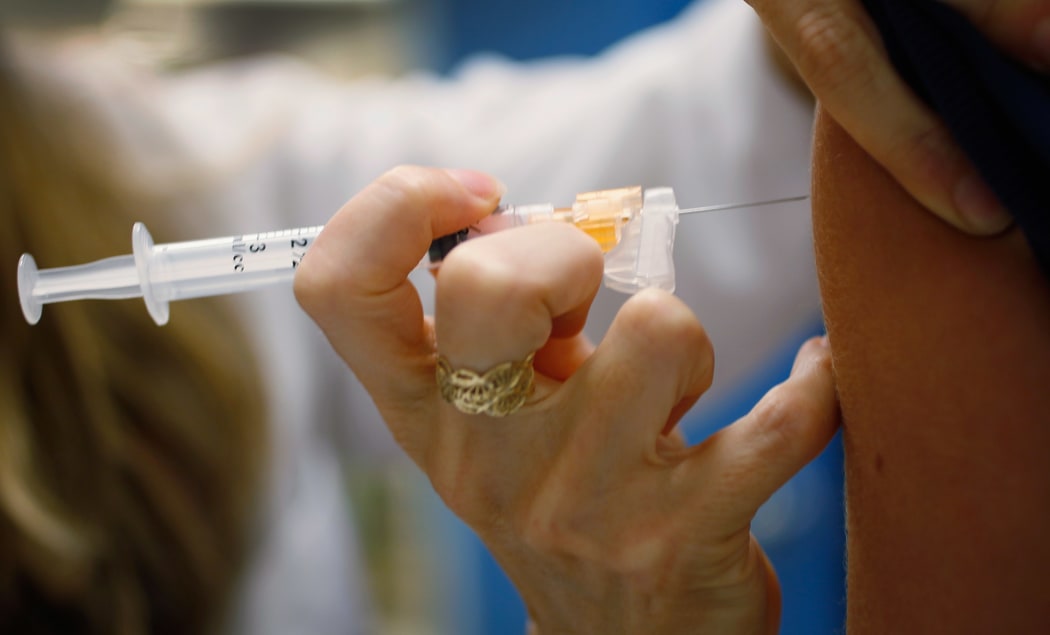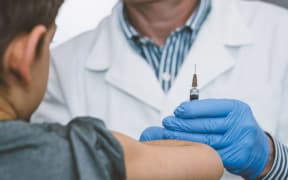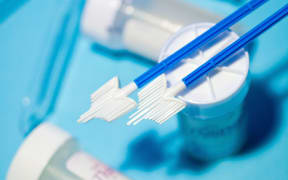Scaremongering by anti-immunisation groups is being blamed for a drop in the rate of Pākehā girls receiving the HPV vaccine.

Vaccinations against HPV provide protection against a variety of cancers, as well as genital warts and warts on the windpipe. Photo: AFP
The HPV vaccine provides protection against a variety of cancers, including cervical cancer, as well as genital warts and warts on the windpipe.
But Whanganui District Health Board immunisation coordinator Karen Page said there had been a drop in Pākehā girls being vaccinated, after anti-immunisation groups sent material to schools warning against the vaccine.
"We're seeing a 10 percent drop since last year. So last year our consent rate was 68 percent for Year 8 girls, for Europeans, for New Zealand Europeans. Now it's 58 percent."
The anti-immunisation groups were scaremongering about the vaccine and girls were suffering as a result, she said.
"I've worked as a public health nurse in schools and seen dreadful cases of, you know, genital warts because the parents have declined the vaccine in Year 8... Your heart sinks for them. You feel sorry for these kids."
Ms Page said, while fewer Pākehā girls were being vaccinated, the rate for Māori girls in Whanganui had increased to 80 percent.
The research director for the Immunisation Advisory Centre at Auckland University, Helen Petousis-Harris, said, anecdotally, immunisation rates across the country were falling.
The campaign against the HPV vaccine had made some parents fearful but she had clear advice for schools that received material raising doubts about the vaccine.
"If schools do receive this sort of information absolutely they should not disseminate it. It's anti-science, it's misinformation, it's scaremongering."
Dr Petousis-Harris said misinformation about the vaccine was inflated by the use of social media.
"People can receive receive forwarded emails or Facebook messages giving them medical advice and unfortunately it seems that there's a lot of people that would be inclined to accept this as, as good advice and heed it," she said.
Meanwhile, the government's drug buying agency Pharmac is intending to vaccinate boys, as well as increase the age at which the vaccine is available.
Ms Page said that would be a big improvement.
"I think it's fantastic that they're looking at increasing the age up to age 26 for boys and girls because there are many, many girls whose parents, around 40 percent nationally of schoolgirls, that parents declined at Year 8, who are now sexually active and older that really would benefit by the vaccine."
In the meantime, though, she and Dr Petousis-Harris remained worried that too many girls were missing out on a vaccine they said could prevent serious health problems.




